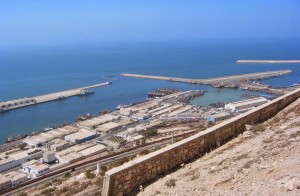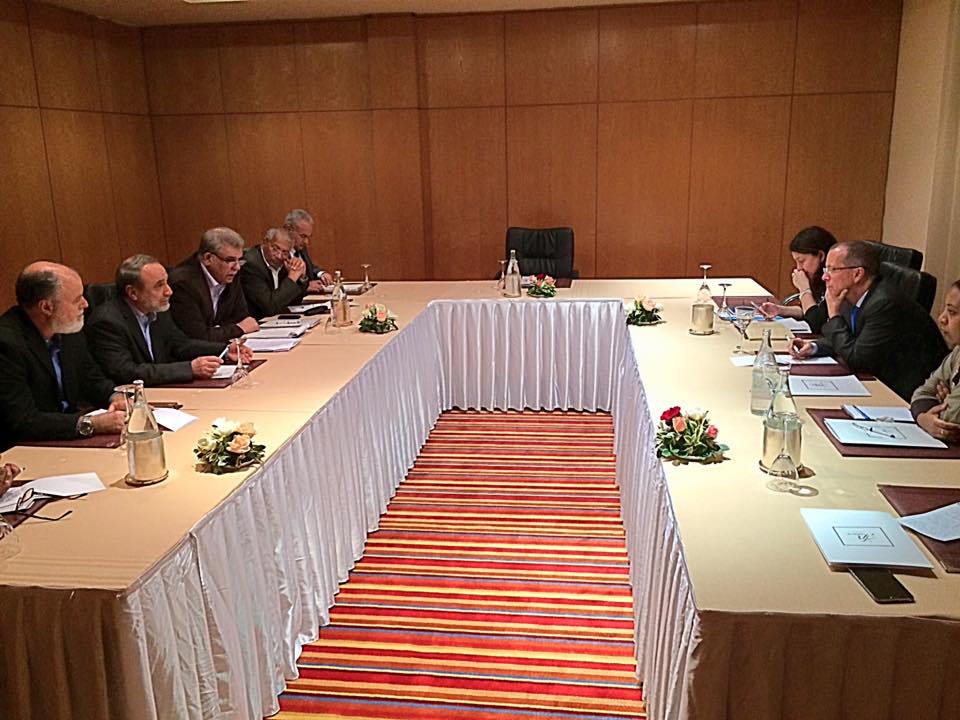By Libya Herald reporters.

Tripoli and Benghazi 12 January 2016:
As NOC rushed to empty storage tanks at the Ras Lanuf export terminal . . .[restrict]and the Libyan Army sent troops south to Jufra to protect two important oilfields, there are real fears that IS has embarked upon a coordinated attack on the country’s oil and gas facilities.
The latest assaults have been an attempted attack Monday from the sea on the Zuetina export terminal and it seems, an overnight sally against the Mellitah oil and gas terminal in the west, which, with Hariga in the east, make up the last functioning export terminals able to earn the country precious foreign currency.
Unconfirmed reports say heavy fighting broke out at the gate of the Mellitah oil and gas compound at around 3am today. The exchanges are supposed to have stopped when forces arrived from Sabratha. No casualty figures have yet emerged.
It was being claimed that because of the fighting, foreign workers were evacuated from the plant. However, ENI told the Libya Herald last November that all overseas personnel working for the Italian state oil company had already been withdrawn from Libya.
IS and Ansar Al-Sharia operate a camp outside Sabratha. Nevertheless, it is not clear that they were involved in what appears to have been an attack that was not pushed home with the ruthlessness normally associated with the terrorists. If there was indeed fighting at the Mellitah complex, it may have been a repeat of November’s intra-militia confrontation which briefly panicked international oil and gas traders – Mellitah processes the gas that is pumped to Italy via the GreenStream transMed pipeline.
On Sunday NOC sent a Greek tanker to Ras Lanuf. to load some 490,000 barrels of crude from the tanks that have survived IS rocket and artillery attacks since they first struck 4 January. This is the first time that any oil has been lifted from this terminal since 2014. Strikes, a blockade by Ibrahim Jadhran’s Petroleum Facilities Guard and collapsing security had combined to stop all exports from the port, which also contains Libya’s largest refinery.
The tank fires in both Sidra and Ras Lanuf were said today to have been extinguished. However, the IS attacks on the two terminals, which have cost the lives of the least 18 members of the Petroleum Facilities Guard, have not yet ended. Alwasat has reported that IS has brought up five tanks near Sidra. There are in addition unconfirmed reports that five captured members of the security forces were beheaded yesterday in Ben Jawad. Six Egyptian workers were also said to have been kidnapped and the driver of the bus on which they were returning home murdered by IS forces.
Meanwhile sources in Benghazi say that General Khalifa Hafter has sent a 95-vehicle column to Jufra to stop the terrorists from pushing into the still-producing Sarir and Messla oil fields. Such an IS incursion would cut the supply through the pipeline north to the Hariga export terminal at Tobruk.
“It has been very obvious that IS was never going to be able to replicate in Libya its Syrian oil sales business model, ” says John Hamilton of Crossborder Infromation, “ So it would seem clear that, as they face the prospect of international attack, they are looking for leverage and protection. Seizing as much as they can of Libyan oil infrastructure therefore makes sense”. [/restrict]









